Search Results
Showing results 1 to 14 of 14
Special Snack: Budgeting for Health
Source Institutions
In this activity, learners will plan a snack within a budget. With a $20 limit (theoretical) to spend on snack for everyone, learners look over grocery store circulars and make their shopping lists.
Many Seeds: Estimating Hidden Seeds
Source Institutions
In this activity, learners will estimate how many seeds are in a fruit or vegetable, then count to find out. The result: mix estimation with healthy eating.
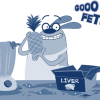
Design a Flavor: Experiment to Make Your Own Ice Cream Flavor!
Source Institutions
In this delicious activity, learners get to make, taste-test and compare their own "brands" of homemade strawberry ice cream.
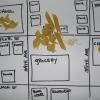
Create a Pasta Population Map
Source Institutions
Learners work as a group to create a map of their community. They use pasta to represent people, and glue the pasta on their maps to show areas of large population.
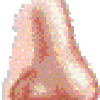
Expose Your Nose
Source Institutions
In this simple exploratory activity (1st activity on the page), blindfolded learners try to identify mystery items by smell.
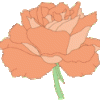
Smell Match
Source Institutions
In this matching activity (3rd activity on the page), learners use their sense of smell to match pairs of opaque containers filled with various smelly items like orange peel, roses, or moth balls.
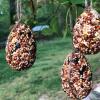
For the Birds
Source Institutions
In this activity, learners will explore nature by creating food for birds. Learners will develop fine motor skills and engage in nature observation through this activity.
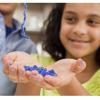
Exploring Fabrication: Gummy Capsules
Source Institutions
In this activity, learners make self-assembled polymer spheres.
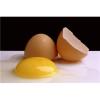
Protect That BRAIN!: Mr. Egghead
Source Institutions
This activity demonstrates the importance of wearing a helmet to protect the brain. An egg is used to symbolize a head with the shell as the skull and the inside of the egg as the brain.
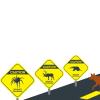
Caution! Wildlife Crossing
Source Institutions
In this design challenge, learners use their creativity and imagination to design and test a wildlife crossing for their favorite animal.

Gummy Shapes
Source Institutions
In this activity, learners use chemistry to “self-assemble” gummy shapes. Learners discover that self-assembly is a process by which molecules and cells form themselves into functional structures.
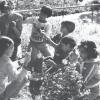
Invent an Animal
Source Institutions
In this outdoor activity and game, learners explore how animals adapt for survival through coloration, markings and camouflage.

Soggy Science, Shaken Beans
Source Institutions
Learners explore soybeans, soak them in water to remove their coat, and then split them open to look inside. They also make a musical shaker out of paper cups, a cardboard tube, and soybeans.
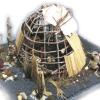
If You Lived in a Forest
Source Institutions
This activity encourages learners to focus on the natural environment of the Eastern Woodlands before the arrival of European settlers.
